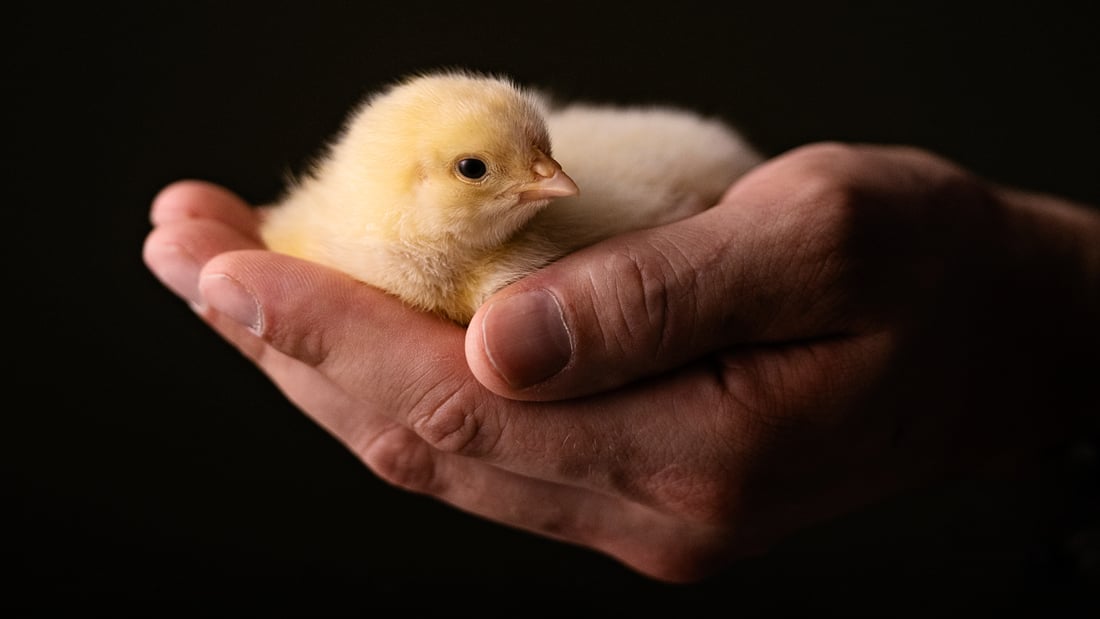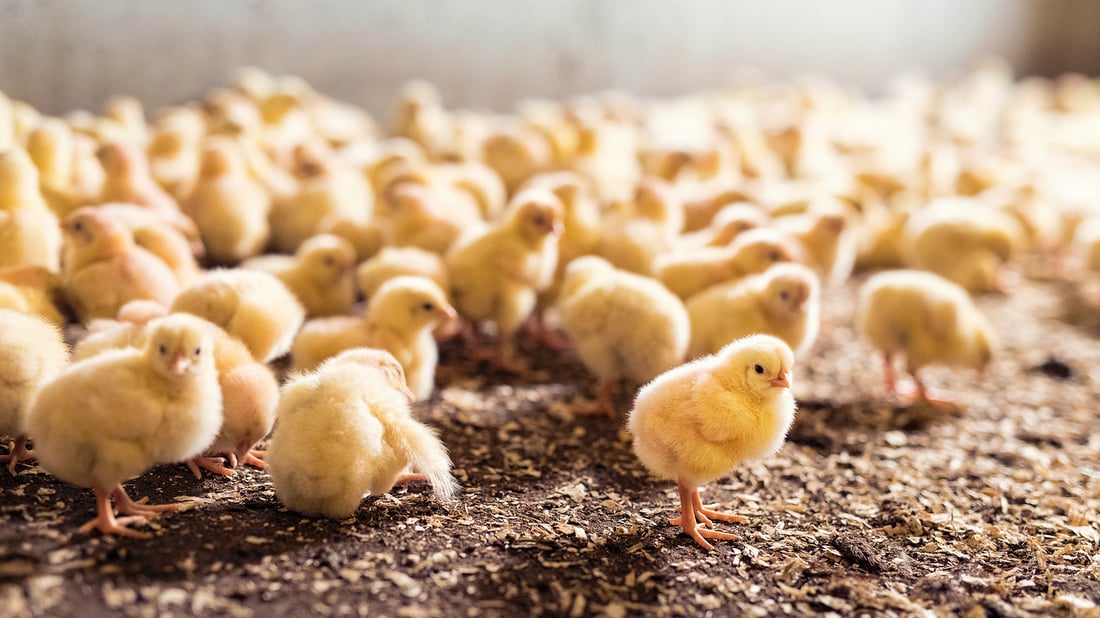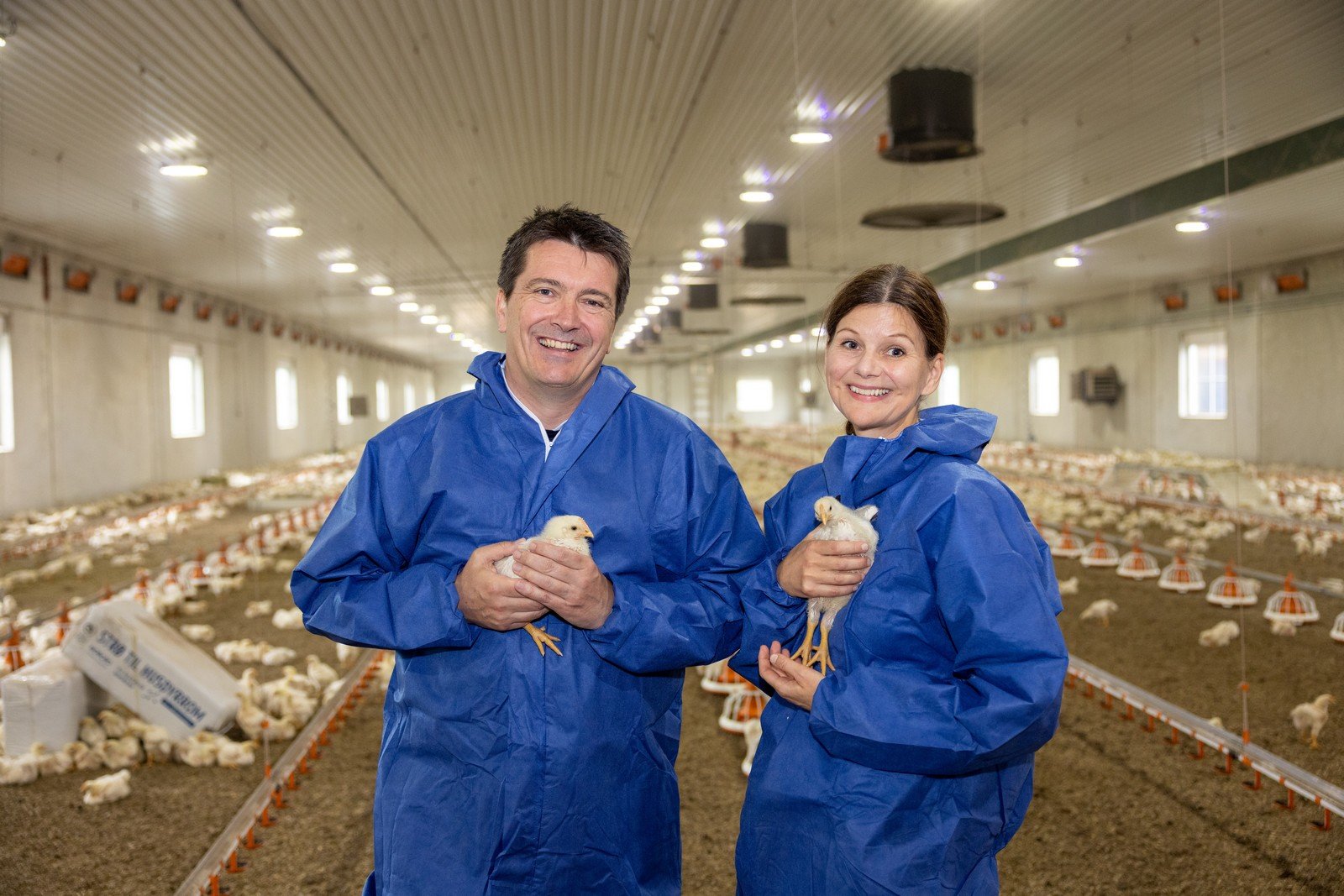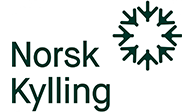Excellent animal welfare and responsibility in operations are at the forefront of Norsk Kylling. So, the chicken and egg producer worked closely with Columbus to deploy Infor CloudSuite Food & Beverage. The ERP system is a key factor in their goal to create the world's best food value chain.
Norsk Kylling, owned by the grocery chain REMA 1000, operates in central Norway, where 133 farmers form the foundation as producers of eggs, hatching hens, and broilers. Each year, Norsk Kylling supplies approximately 81 million dinners to Norwegian consumers under the Solvinge brand.
“Our aim is to create the world's best value chain for food production, where good animal welfare for the chickens is a key factor,” says Kjell Stokbakken, CEO of Norsk Kylling.
“A chicken having better living conditions and feeling better, tastes better,” says Torfinn Utne, IT manager at Norsk Kylling. “The best possible animal welfare and responsibility throughout the value chain are central to our strategy. To succeed, we are completely dependent on smart systems and accessible and accurate management information that we get from the digital foundation that seamlessly collects and structures large amounts of data.”
The first to achieve international standard
In August 2022, Norsk Kylling became the world's first producer to meet the European Chicken Commitment (ECC) standard. Therefore, the chickens get more space in the barn and daylight via windows and lights with a daylight spectrum, among other advantages. The producer has also decided to use a breed that grows more slowly than other Norwegian chickens. The result is that you have more active chickens with a greater quality of life.

“Animal welfare and sustainability were important to us when we selected a new chicken breed in 2017, and it has become even more important today for consumers. Therefore, we continue to work to ensure that our digital support systems work optimally across our work processes and in the business — especially within the triangle of ERP, factory management systems, and reporting. Our focus on responsibility at all stages requires that we also have total control in the value chain,” Utne says.
Norsk Kylling invests heavily in sustainability and carries out a life-cycle analysis of its entire value chain to ensure that its methods have a documentable positive effect on the environment.
“The analysis shows that the switch to a slower-growing chicken breed has resulted in considerably better animal welfare without increasing the carbon footprint of the value chain,” Utne says.
Successful ERP project
Norsk Kylling has deployed Infor CloudSuite Food & Beverage, based on a standardised, multi-tenant cloud ERP solution without needing industry customizations. The solution already has pre-configured settings designed for the food industry.
Per Christian Oen, business solutions director at Columbus, emphasises that the strategy from the start has been to invest in a standard industry solution. “The advantage of that is that Norsk Kylling avoids the need for major upgrades every four years. Now everything is always updated. Security, disaster recovery, scalability, all of this is handled by Infor, which spends large resources on this, and then Norsk Kylling can focus on what they are good at.”
Utne says it has been a complicated but very successful project. “Even though we have chosen a standardized ERP solution from Infor, we must not forget that this has been an interdisciplinary digitalization process throughout the organisation at the same time that we had to secure management information from a relatively complex value chain.”
“Columbus has delivered a successful digitalisation project on time and at cost, with a combination of solid industry insight, a good understanding of who we are and where we are going, while, at the same time, they are specialists in the Infor solution we have chosen,” Utne notes.

Digital control from farm to table
The ERP system ensures management information from both the hatchery and slaughterhouse, the purchase and sale of eggs and chickens, and is the foundation for control with tracking and documentation. Accurate management information is used to reduce waste and provide control over inventory while improving the planning of production to align with changing market needs.
“In the past, a lot of information was collected and handled manually, which is time-consuming and can be a source of errors,” says Øen. “Now the entire tracking chain is shown visually, from hatching egg production to the hatchery, broiler production, and completion of various chicken dishes that you find on store shelves. The production itself is tracked and documented in real-time from the final product all the way back to the chicken farmers, and you can quickly document and track transactions from farm to table.”
Torfinn Utne emphasizes that this is of great importance for the ethical responsibility in everything from animal welfare to the quality of the products because they can quickly trace deviations. “We work well with the individual farmer on animal welfare and quality, and this collaboration ensures that we can safely receive 55,000 chickens to the processing plant every morning,” Utne says.
Updated in the cloud
“ERP operation in the cloud is different from on-premise, and now we are in the process of securing great management routines for operation in the cloud. For example, we need ongoing recommendations for which upgrades of preconfigured settings should be turned on or off. The purpose is to continuously strengthen our improvement and innovation projects, and Columbus helps us keep up with the times and make good digital choices,” says Utne.
Are Denstad, Norsk Kylling's director of finance and business development, says the digitalisation journey has been important in supporting the overall strategy with its objectives.
“We have had a great focus on how we carry out the projects at the same time as we adapt the technology in our organization. This has required broad involvement in all parts of the organization, with project responsibility at all levels. In operation, we depend on efficient solutions with few errors to secure a safe and resource-efficient everyday life.”
Nature-neutral company by 2030
Norsk Kylling plan to be a nature-neutral company by 2030. The new slaughterhouse and processing plant at Orkanger, opened in 2021, will cut greenhouse gas emissions by nearly 100 percent. The plant has an energy mix consisting of waste heat from nearby industry, solar energy, and seawater used for cooling.

This is combined with thermal energy storage, smart energy management, and energy procurement. In addition, the industrial plant itself is built tall to minimize footprint and optimize energy use.
But it does not stop there. The chicken transport system will switch to biogas from diesel and have its filling station at Støren. At the same time, the group's investment company, Reitan Kapital, has taken ownership of the feed producer Pronofa, which works to develop sustainable chicken feed. Each farmer has also been given access to a climate calculator, which provides the farmer with an overview of greenhouse gas emissions from production on the farm. The farmer can then map the opportunities for reducing emissions and plan the operation and use of the farm's resources in the best possible way.
